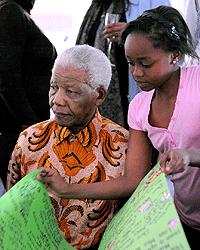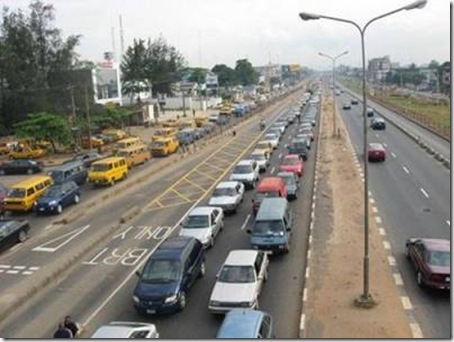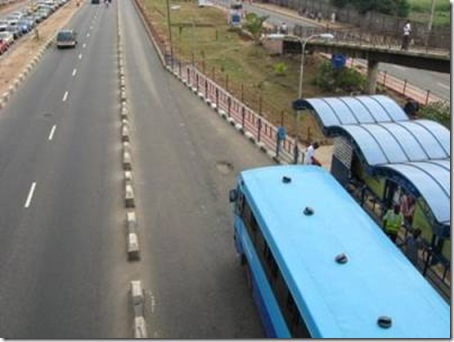DUISBURG, Germany – The death toll rose to 19 on Sunday and police said that 342 had been injured in a panicked crush of partygoers in an overcrowded tunnel that served as the sole entrance to a German festival billed as the world's largest techno music party.
The founder of the Love Parade said it would never be held again.
"The Love Parade was always a peaceful event and a happy party" but would forever be overshadowed by the tragedy, Rainer Schaller said.
"It's over for the Love Parade," he said.
He spoke at a press conference where authorities faced tough questions, but provided few details, about why hundreds of thousands of people were funneled through a single highway underpass into the former freight railway station used to host the party.
German media reported that there were at least 1.4 million people but police did not confirm that estimate.
Detlef von Schmeling, the police chief in Duisburg, said that 16 of the 19 people killed have been identified so far. He said they include an Australian, an Italian, a Chinese citizen and a person from Holland.
Von Schmeling said their ages ranged from just over 20 to 40.
Witnesses said officers in Duisburg, a city near Duesseldorf in western Germany, closed the end of the tunnel emptying onto the festival grounds after they become overcrowded around 5 p.m. They told revelers over loudspeakers to turn around and walk back in the other direction. But the entrance to the tunnel did not appear to have been closed and people continued piling in, sparking a panic and then a deadly crush.
Witnesses described a desperate scene, as people piled up on each other or scrambled over others who had fallen.
Partygoer Udo Sandhoefer told n-tv television that even though no one else was being let in, people still streamed into the tunnel, causing "a real mass panic."
"At some point the column (of people) got stuck, probably because everything was closed up front, and we saw that the first people were already lying on the ground," he said.
City officials chose not to evacuate the site, fearing it might spark more panic, and many people continued partying, unaware of the deaths.Rescue workers carried away the injured as techno music thundered in the background.
Other workers had trouble getting to the victims, hampered by the huge crowds. Local media reported that the cell phone system in Duisburg broke down temporarily and frantic parents trying to reach their children instead drove to the scene to look for them.
However, most streets downtown were blocked by police and the highways leading to the city were jammed. Several media outlets also reported that rescue helicopters had problems taking away the heavily injured because there was not enough space for them to land.
The founder of the Love Parade, Matthias Roeingh, known by the name Dr. Motte, blasted the planning for the event, saying "one single entrance through a tunnel lends itself to disaster. I am very sad."
German authorities also have not identified the victims yet, but the Dutch Foreign Ministry said that a 22-year-old Dutch man was among then.
German leaders, including Chancellor Angela Merkel, voiced shock that an event meant to celebrate youth, peace and love could turn so deadly.
"The young people came to celebrate and instead there are dead and injured," Merkel said Saturday. "I am horrified by the suffering and the pain."
It was the worst accident of its kind since nine people were crushed to death and 43 more were injured at a rock festival in Roskilde, Denmark, in 2000. That fatal accident occurred when a huge crowd pushed forward during a Pearl Jam gig.
The Love Parade, where people from across Europe gather to dance, watch floats and listen to DJs spin, was once an institution in Berlin, but has been held in the industrial Ruhr region of western Germany since 2007.
The original Berlin Love Parade grew from a 1989 peace demonstration into a huge outdoor celebration of club culture that drew about 1.5 million people at its peak in 1999. But it suffered from financial problems and tensions with city officials in later years, and eventually moved.
The website of the Love Parade — whose motto this year was "The Art of Love — went black on Saturday night, with words in white saying:
"Our wish to arrange a happy togetherness was overshadowed by the tragic accidents today. ... Our sincere condolences to all the relatives and our thoughts are with all of those who are currently being taken care of."
_source:___yahoo news

Nelson Mandela with his great granddaughter Zenani, who was killed in a car accident following Thursday's kickoff concert. (AP
The Nelson Mandela Foundation said the tragedy “made it inappropriate” for the former president, who is 91, to attend the opening ceremony in Johannesburg.
“We are sure that South Africans and people all over the world will stand in solidarity with Mr. Mandela and his family in the aftermath of this tragedy,” the foundation said, adding that Mandela “will be there with you in spirit today.”
Johannesburg Metro police spokeswoman Edna Mamonyane said the driver of the car had been arrested and charged with drunk driving. Mamonyane said the driver, whom police didn’t identify, could also face homicide charges.
“The Metro police found that he was drunk,” Mamonyane said. “He lost control of the vehicle and it collided with a barricade.”
Police spokesman Govindsamy Mariemuthoo, who earlier said the driver would appear in court for a preliminary hearing Friday, said that had been postponed for further investigations, and that the driver was not being held. Mariemuthoo said that was not unusual.
“It’s a decision of the prosecutor,” he said.
The Mandela foundation denied reports that the former president’s ex-wife Winnie Madikizela-Mandela was in the car, but said she was treated in a hospital for shock after being told of the fatal accident. She was discharged after a few hours.
She was on the VIP list for the opening ceremony, and a press box official confirmed she was at Soccer City, but the foundation said later that Madikizela-Mandela did not attend.
FIFA president Sepp Blatter and U.S. Vice President Joe Biden, who was in South Africa to lead his country’s delegation to the opening ceremony, were among those who offered condolences.
South African President Jacob Zuma, calling Mandela by his clan name Madiba — a term of affection—referred to the death in the Mandela family in an address to the crowd before the Mexico-South Africa game started.
He said Mandela had wanted to be there, “but unfortunately there was a tragedy in the Mandela family.”
“But he said the game must start. You must enjoy the game,” Zuma added.
Mandela has achieved glory as a politician and human rights campaigner, but suffered many personal tragedies.
In 1969, three years after arriving on Robben Island to serve a life sentence for sabotage, Mandela received a telegram from his younger son, Makgatho, informing him that his eldest son, Madiba Thembekile, died in a car crash.
Prison authorities refused to allow Mandela to attend the funeral.
“I do not have words to express the sorrow, or the loss I felt,” Mandela wrote in his autobiography. “It left a hole in my heart that can never be filled.”
Thirty-six years later, Makgatho died. Mandela announced his last surviving son died of AIDS-related complications, saying the only way to fight the disease’s stigma was to speak openly.
Mandela’s family life suffered during years devoted to politics, as an underground anti-apartheid fighter and in prison. Two marriages fell apart, the second to Winnie. He began his 27-year imprisonment only four years after marrying her.
Mandela was freed in 1990. Four years later, his lifelong battle over apartheid won, he became South Africa’s first black president. He served just one term, then devoted himself to international causes, including fighting AIDS.
He has announced his retirement and desire to devote time to his family several times. Increasingly, those close to him and other South Africans have said the reward for all he has done for his country should now be freedom from the public’s demands.
On his 80th birthday July 18, 1998, he married Graca Machel, a veteran of the anti-colonial struggle in her native Mozambique, former education minister, noted international child rights advocate and widow of Mozambique’s first president, Samora Machel.
Graca Machel once told a television interviewer she helped Mandela reconnect with his family. Family photos released by his foundation Friday showed a relaxed and smiling Mandela with Zenani and other great-grandchildren.
Zenani was one of the anti-apartheid icon’s nine great-grandchildren.
Source: Yahoo Sport













































